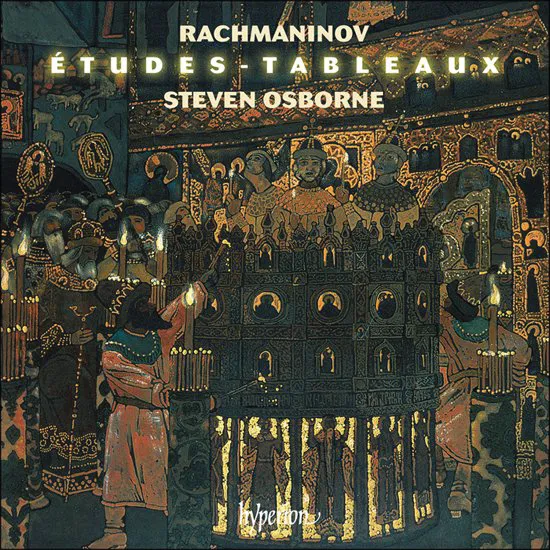
Rachmaninov Etudes-Tableaux Steven Osborne (piano) Hyperion CDA 68188 61:39 mins
For all his mastery of larger forms Rachmaninov’s miniatures, I confess, can seem in the hands of most pianists rather invariably lugubrious and moody, certainly compared to the pithy and quick-silver inspiration of his near contemporary Scriabin. An exceptional level of sympathy coupled with extraordinary piano technique is needed to transform these works into pure narrative gold.
Steven Osborne has already shown his feeling for Rachmaninov’s music in recordings of the Preludes and the Second Sonata, so it is no surprise to hear him give such idiomatic accounts of the Etudes-tableaux. The sheer polish of his technique is remarkable, approaching the patrician nonchalance of Rachmaninov himself – indeed, appearing at times to exceed him, as in the swift Allegro con fuoco, albeit with the undeniable advantage of modern studio recording as against the single continuous takes Rachmaninov had to contend with. Rustem Hayroudinoff’s acclaimed Chandos recording of these opuses is simply outclassed in this respect. Yet I felt something was missing, a sense that Osborne was perhaps not fully attuned to Rachmaninov’s particular voice as opposed to the style the composer shared with early Scriabin. That affinity is exactly what Mikhail Pletnev provides, though offering just four of the Etudes-tableaux, in his Hommage à Rachmaninov album on Deutsche Grammophon: his transcendental technique, and seamless coordination of pedal with rhetorical rubato and phrasing fully unveil these darkly expressive and compelling dramas. For a complete set of these works, Osborne’s recording is recommendable, if not quite reaching the inspirational level Pletnev demonstrates in his selection.
Daniel Jaffé